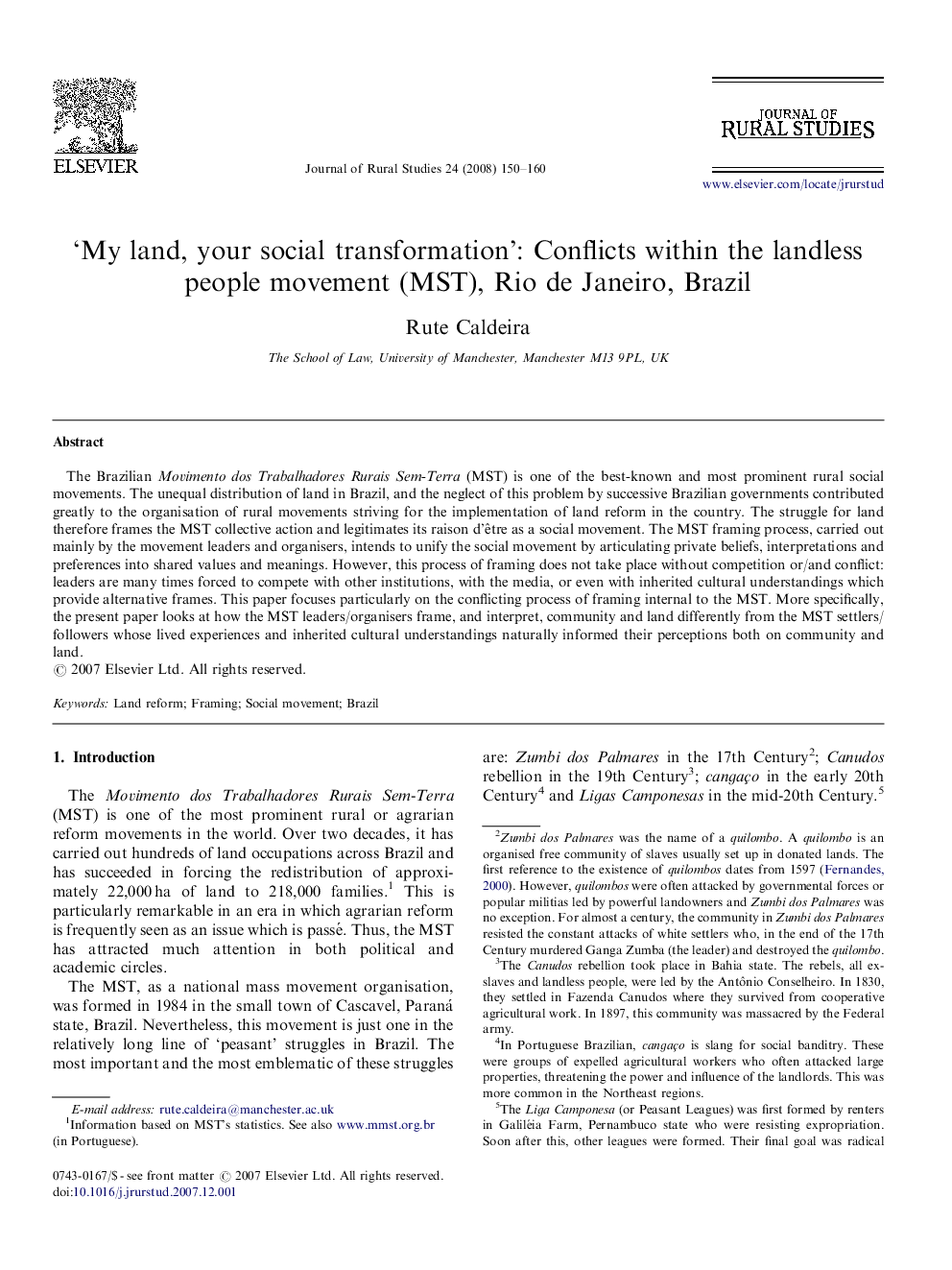| Article ID | Journal | Published Year | Pages | File Type |
|---|---|---|---|---|
| 92802 | Journal of Rural Studies | 2008 | 11 Pages |
The Brazilian Movimento dos Trabalhadores Rurais Sem-Terra (MST) is one of the best-known and most prominent rural social movements. The unequal distribution of land in Brazil, and the neglect of this problem by successive Brazilian governments contributed greatly to the organisation of rural movements striving for the implementation of land reform in the country. The struggle for land therefore frames the MST collective action and legitimates its raison d’être as a social movement. The MST framing process, carried out mainly by the movement leaders and organisers, intends to unify the social movement by articulating private beliefs, interpretations and preferences into shared values and meanings. However, this process of framing does not take place without competition or/and conflict: leaders are many times forced to compete with other institutions, with the media, or even with inherited cultural understandings which provide alternative frames. This paper focuses particularly on the conflicting process of framing internal to the MST. More specifically, the present paper looks at how the MST leaders/organisers frame, and interpret, community and land differently from the MST settlers/followers whose lived experiences and inherited cultural understandings naturally informed their perceptions both on community and land.
